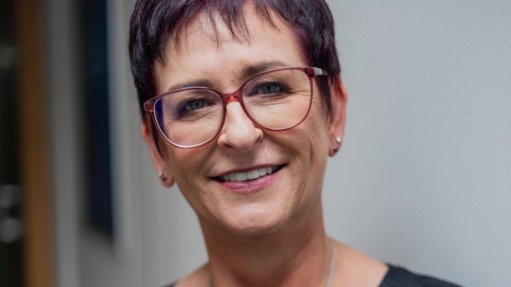Africa’s chronic youthfulness
Planet Earth will be home to more than eight-billion of us before year-end and a further ballooning to 9.5-billion by 2050 is projected as sustained high fertility rates and declining mortality in Africa more than offset falling births in other regions.
Writing in the UK’s The Guardian newspaper last month, Africa Research Institute director Edward Paice forecast that the populations of more than half of Africa’s 54 nations will increase by at least 50% in the next three decades, resulting in the continent’s inhabitants constituting at least one-quarter of the world total, up from one-tenth in 1950.
A remarkable facet of Africa’s population is its youthfulness: 40% of the continent’s inhabitants are under the age of 14, while the median age in most countries is below 20. According to some estimates, African mothers will give birth to about 450-million babies this decade, with the number increasing to about 550-million in the 2040s, equivalent to 40% of all children born worldwide during that decade. As birth rates elsewhere slow, this implies that Africa will maintain its status as the continent with the most youthful population.
Much has been made of Africa’s growing youthful population as a demographic dividend – implying that it delivers many advantages, including a plentiful supply of labour for both unskilled and skilled jobs, assuming sufficient fit-for-purpose skills development takes place.
However, as a contributor to the UK’s Financial Times newspaper pointed out in an article published in December, youth should not be confused with the demographic motor that was responsible for the takeoff of East Asia’s economies in the 1970s. That ‘miracle’ was linked to a significant decline in birth rates in the countries in the region, which resulted in an increase in the proportion of working-age people relative to dependants. That demographic is not present in Africa. In sub-Saharan Africa, for example, the age dependence ratio was 76% in 2020, according to World Bank data. This means there were about 76 people aged 14 or younger and 65 years or older for every 100 people of working age – that is, 15 to 64 years.
Clearly, a youthful population on its own will not translate into development and economic prosperity for countries. The East Asians benefited from strong political leadership that had the presence of mind to invest heavily in quality education to ensure that young people were employable upon leaving school or college or university. They also adhered to good governance principles so that their countries would be attractive foreign direct investment destinations.
Many – not all – African leaders fall short on the good governance score. As readers of this column would recall, I’ve written numerous pieces about how the foundation established by Sudanese telecoms billionaire Mo Ibrahim has battled over the years to identify a recently retired head of State or government worthy of recognition for having demonstrated they were paragons of sound governance during their tenure. The accolade is supposed to be awarded every year. However, since its launch in 2007, only seven laureates have been named: two in 2007 – Nelson Mandela and Mozambique’s Joaquim Chissano – and one each in 2008, 2011, 2014, 2017 and 2020.
We need to fix governance issues to benefit fully from our increasing, youthful population. Assuming our leaders do not play ball, we will benefit in other ways, however. The sheer size of our population – 25% of the world total by 2050 – means the rest of the world won’t continue to marginalise us. As Paice puts it, this will “bring about a reimagining of African countries and their populations”. He adds: “This alone will impact on geopolitics, global trade, technological development, the future of the world’s dominant religions, patterns of migration – almost every aspect of life.”
Article Enquiry
Email Article
Save Article
Feedback
To advertise email advertising@creamermedia.co.za or click here
Comments
Announcements
What's On
Subscribe to improve your user experience...
Option 1 (equivalent of R125 a month):
Receive a weekly copy of Creamer Media's Engineering News & Mining Weekly magazine
(print copy for those in South Africa and e-magazine for those outside of South Africa)
Receive daily email newsletters
Access to full search results
Access archive of magazine back copies
Access to Projects in Progress
Access to ONE Research Report of your choice in PDF format
Option 2 (equivalent of R375 a month):
All benefits from Option 1
PLUS
Access to Creamer Media's Research Channel Africa for ALL Research Reports, in PDF format, on various industrial and mining sectors
including Electricity; Water; Energy Transition; Hydrogen; Roads, Rail and Ports; Coal; Gold; Platinum; Battery Metals; etc.
Already a subscriber?
Forgotten your password?
Receive weekly copy of Creamer Media's Engineering News & Mining Weekly magazine (print copy for those in South Africa and e-magazine for those outside of South Africa)
➕
Recieve daily email newsletters
➕
Access to full search results
➕
Access archive of magazine back copies
➕
Access to Projects in Progress
➕
Access to ONE Research Report of your choice in PDF format
RESEARCH CHANNEL AFRICA
R4500 (equivalent of R375 a month)
SUBSCRIBEAll benefits from Option 1
➕
Access to Creamer Media's Research Channel Africa for ALL Research Reports on various industrial and mining sectors, in PDF format, including on:
Electricity
➕
Water
➕
Energy Transition
➕
Hydrogen
➕
Roads, Rail and Ports
➕
Coal
➕
Gold
➕
Platinum
➕
Battery Metals
➕
etc.
Receive all benefits from Option 1 or Option 2 delivered to numerous people at your company
➕
Multiple User names and Passwords for simultaneous log-ins
➕
Intranet integration access to all in your organisation

















